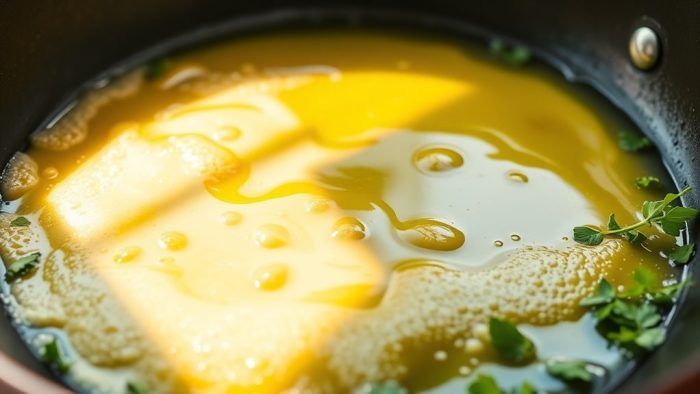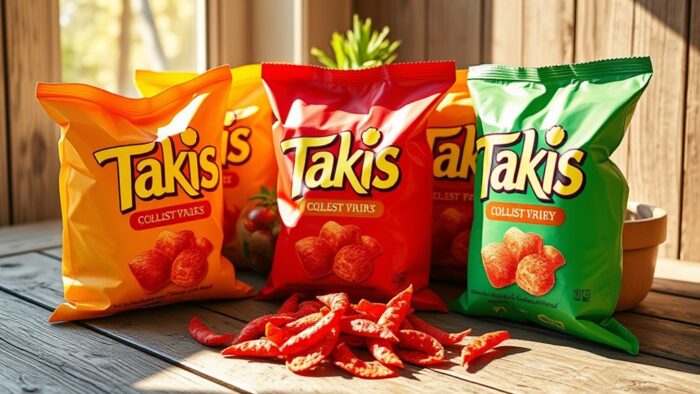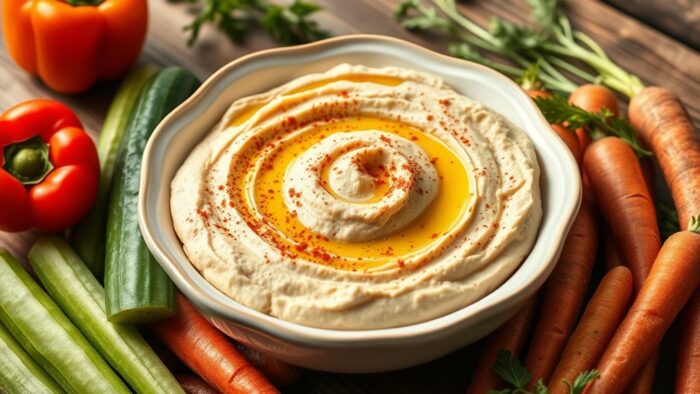Is Crisco Vegan?
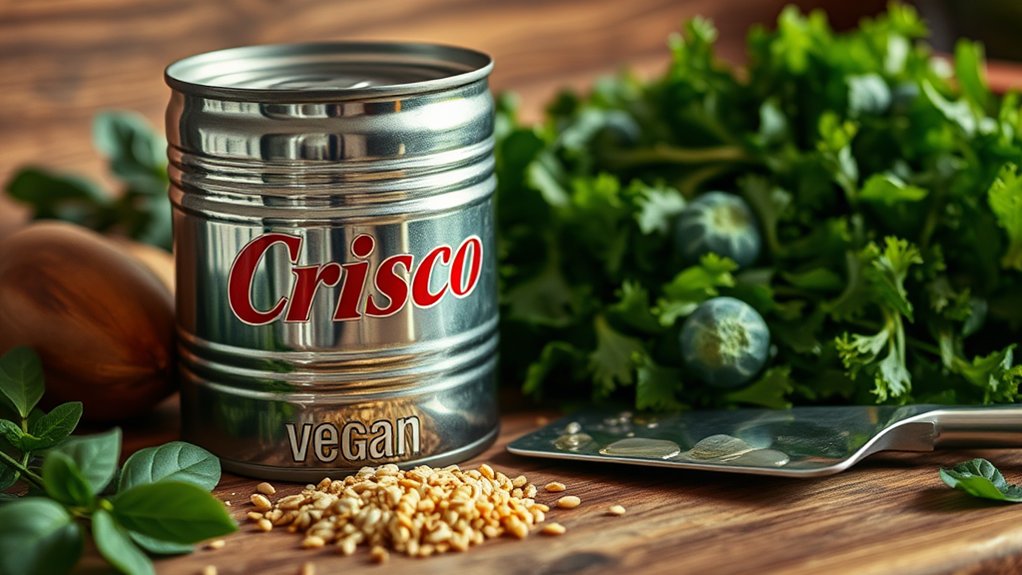
If you’re looking into vegan options in your kitchen, you might be wondering about the ingredients in your favorite cooking fats. Crisco, a popular choice for baking and frying, often comes up in these discussions. Understanding what’s in it and where those ingredients come from is essential, especially if you’re committed to a vegan lifestyle.
While Crisco is mainly made from soybean oil and hydrogenated palm oil, the ethical implications of palm oil sourcing can raise some eyebrows. Plus, even though it’s marketed as a healthier choice with zero trans fats, there are still health considerations to keep in mind.
Curious to learn more about whether Crisco fits into a vegan diet and what alternatives might be available? Let’s dive deeper into the topic!
What Is Crisco Made Of?
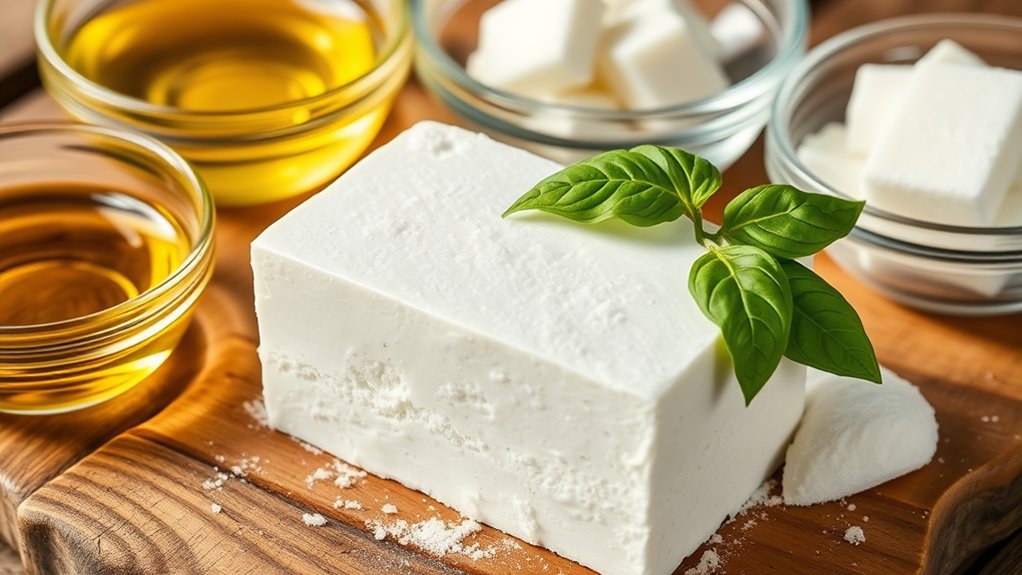
Crisco is a popular vegetable shortening primarily composed of a blend of soybean oil and fully hydrogenated palm oil. This combination gives Crisco its solid texture at room temperature, making it an effective option for various baking and cooking needs.
Crisco is marketed as a dairy-free and vegan-friendly product, which appeals to those looking for plant-based alternatives in their cooking. In addition to soybean oil and palm oil, Crisco contains mono and diglycerides. These emulsifiers can come from both plant and animal sources, but Crisco assures consumers that theirs are derived from plants, reinforcing its commitment to a plant-based profile.
Another ingredient in Crisco is citric acid, which is generally produced synthetically and is free from animal products. The fully hydrogenated palm oil not only contributes to the shortening’s solid consistency but also increases its performance in a variety of recipes, from baking to frying.
For those who are looking for a suitable cooking oil that avoids animal products, Crisco stands out as a reliable choice. Its formulation makes it a versatile option for both experienced bakers and home cooks alike.
Knowing what Crisco is made of can help you make informed decisions about your cooking and baking needs.
Are the Mono and Diglycerides in Crisco Vegan?
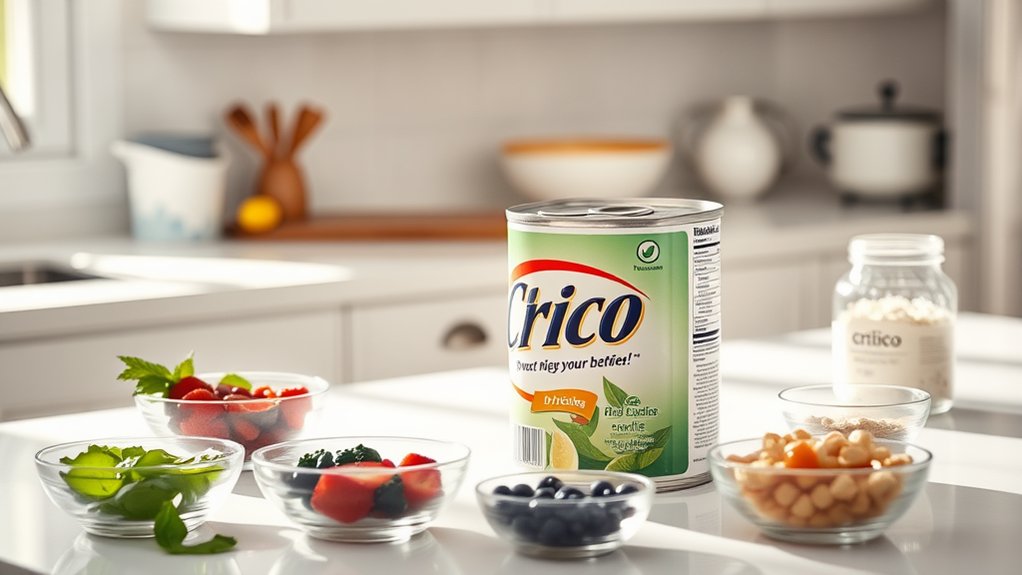
When evaluating whether Crisco is vegan, it’s important to look closely at the ingredients, particularly the mono and diglycerides. These emulsifiers can come from both plant and animal sources, which can create some uncertainty for those following a vegan diet.
Crisco has stated that the mono and diglycerides used in their products are derived from plant sources, which supports the idea that Crisco shortening is suitable for vegans.
However, it’s worth noting that some strict vegans may still have reservations about processed foods like Crisco due to concerns about ingredient sourcing and processing practices.
If you’re committed to a vegan lifestyle and want to confirm that every ingredient aligns with your values, reaching out to the company for confirmation can be a good approach.
Understanding the source of mono and diglycerides is crucial for anyone who’s conscious about vegan compliance in their food choices.
How About Palm Oil?
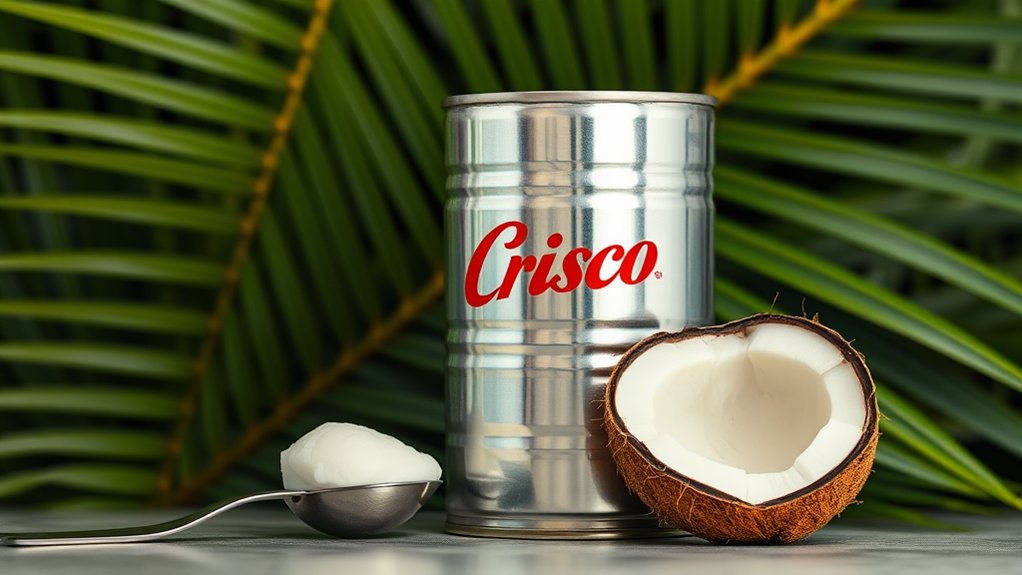
The use of palm oil in Crisco has generated important discussions regarding its vegan status. While palm oil is indeed plant-based, which supports the classification of Crisco as a vegan product, it raises significant ethical concerns related to sourcing.
The cultivation of palm oil is often linked to deforestation and habitat destruction, which can have serious consequences for biodiversity and ecosystems. Many individuals who follow a vegan lifestyle choose to avoid palm oil because of these environmental issues.
Even though Crisco claims to source sustainable palm oil, this commitment is frequently questioned by consumers who prioritize ethical sourcing practices.
This situation highlights a complex debate within the vegan community about balancing plant-based ingredients with responsible sourcing. For those checking out healthier alternatives, it’s essential to consider not only the ingredients but also the impact of their sourcing on the environment.
Understanding these factors can help consumers make more informed choices about products like Crisco.
Is Crisco Healthy Then?
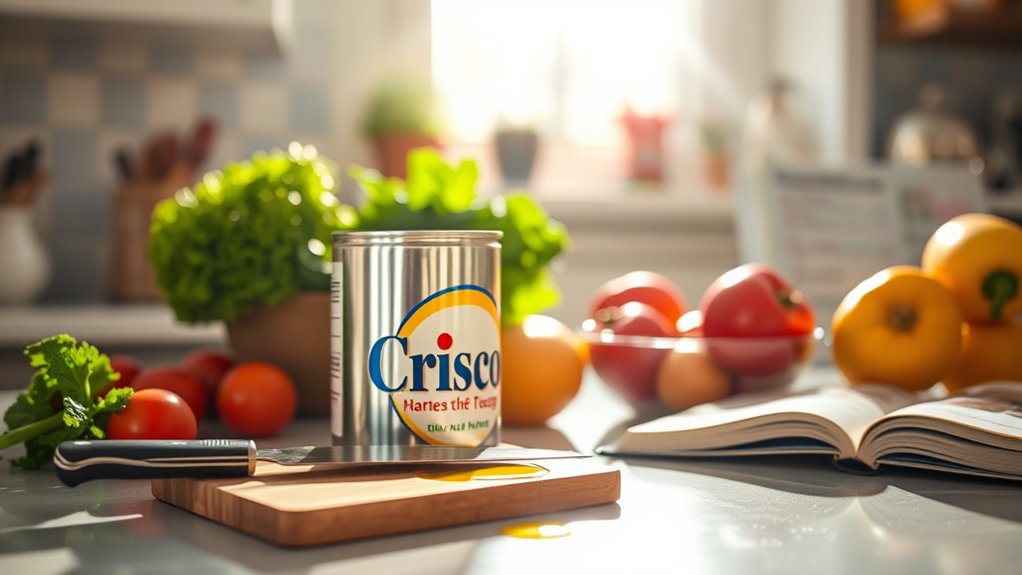
Crisco is a popular cooking fat, but how healthy is it really? While Crisco markets itself as having zero grams of trans fat, it’s important to note that it contains fully hydrogenated palm oil, which may introduce trace amounts of trans fats. This raises some health concerns.
Crisco is calorie-dense and high in fats, yet it lacks essential vitamins and minerals. Consuming it in large amounts can contribute to an unhealthy diet. Some nutrition experts suggest that oils like soybean and palm can be acceptable in moderation, but regularly using Crisco may increase your risk of heart disease due to its fat profile.
Crisco does advertise that it has 50% less saturated fat than butter, which might sound appealing. However, this claim can be a bit misleading, as the overall health impact of fats in your diet is more complex than just looking at saturated fat content.
Some Crisco Alternatives
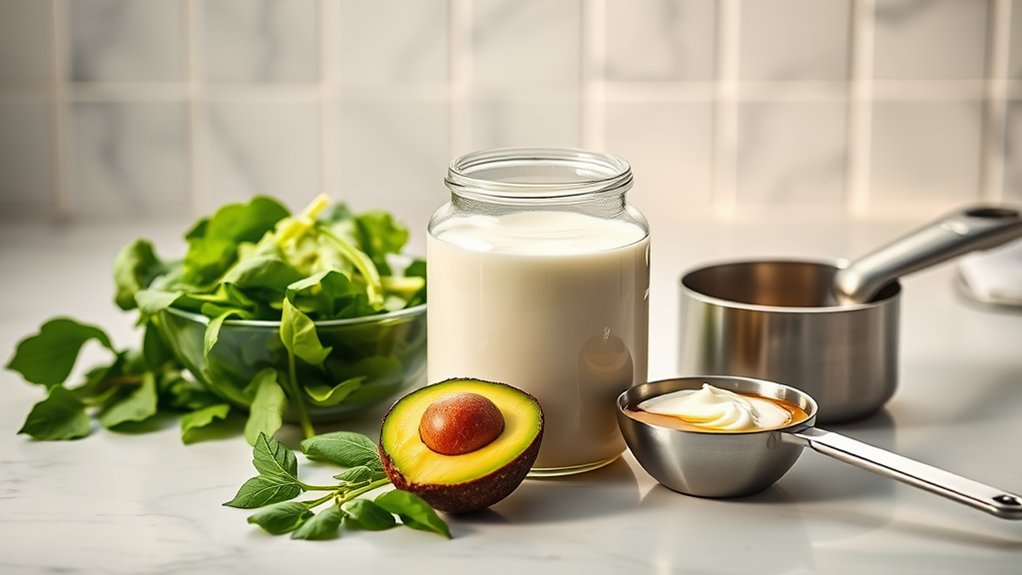
If you’re looking into alternatives to Crisco, you have several options that can deliver similar baking results while accommodating different dietary preferences. Here are some effective substitutes you might consider:
- Melted Coconut Oil: This option provides a texture comparable to Crisco and adds a subtle coconut flavor, which can improve the overall taste of your baked goods. It works particularly well in recipes for cookies and cakes.
- Canola Oil: As a neutral-tasting vegetable oil, canola oil is a great choice for maintaining the consistency of your recipes without altering the flavor. It’s versatile and can be used in a variety of baked items.
- Avocado Oil: With its high smoke point and neutral flavor, avocado oil is an excellent substitute in baking. It’s suitable for various applications, from cakes to muffins, allowing for a healthier fat option without compromising texture.
- Vegan Butter: If you’re looking for a more traditional buttery taste, vegan butter substitutes like Earth Balance and Miyokos can closely mimic the flavor and texture of Crisco. These options are particularly useful for those following a plant-based diet.
When selecting any of these substitutes, it’s a good idea to check for non-GMO labeling if that aligns with your dietary choices and ethical considerations.
Choosing the right alternative can help you achieve the desired results in your baking while catering to your specific needs.
